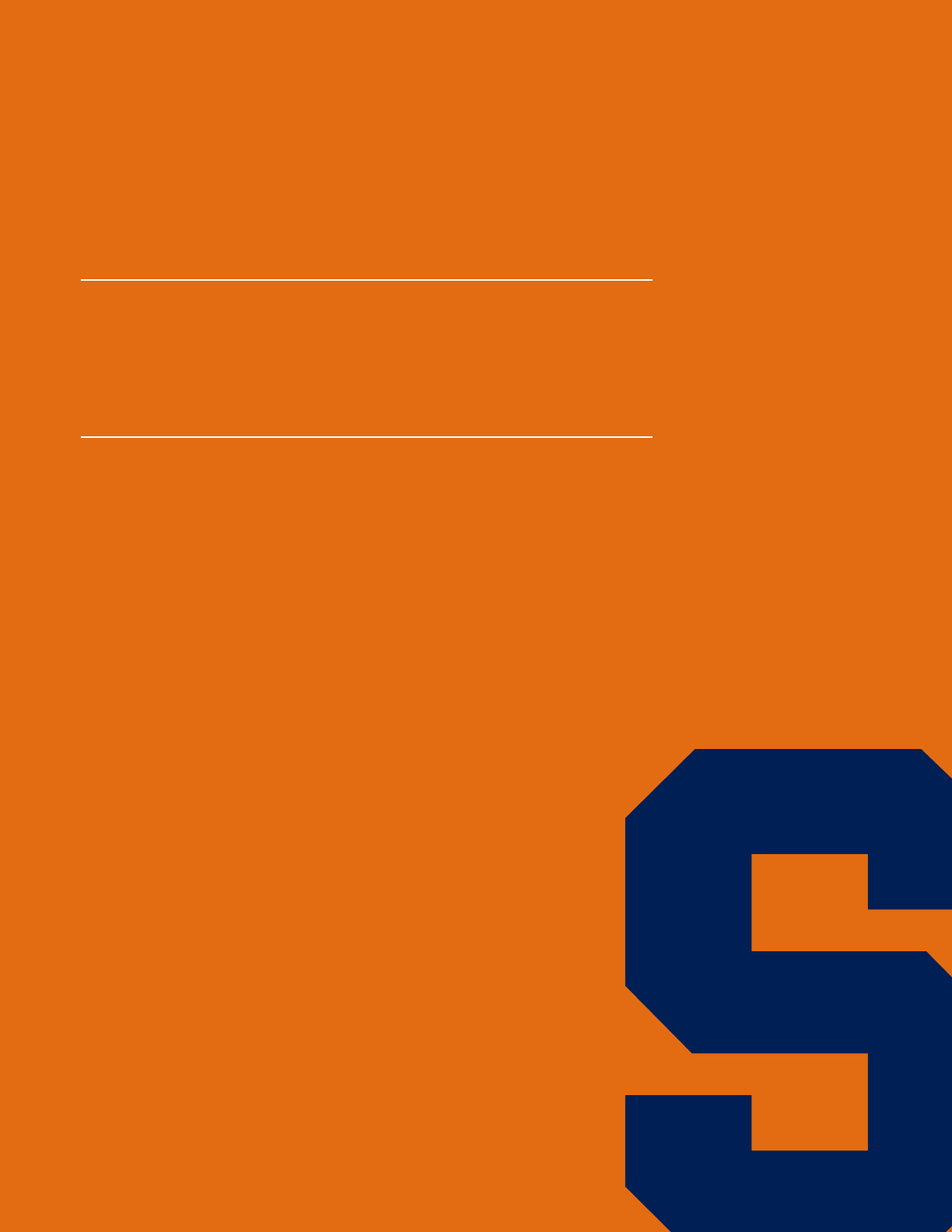
Syracuse Universit
Food Services
Student Employment Handbook
2021-2022
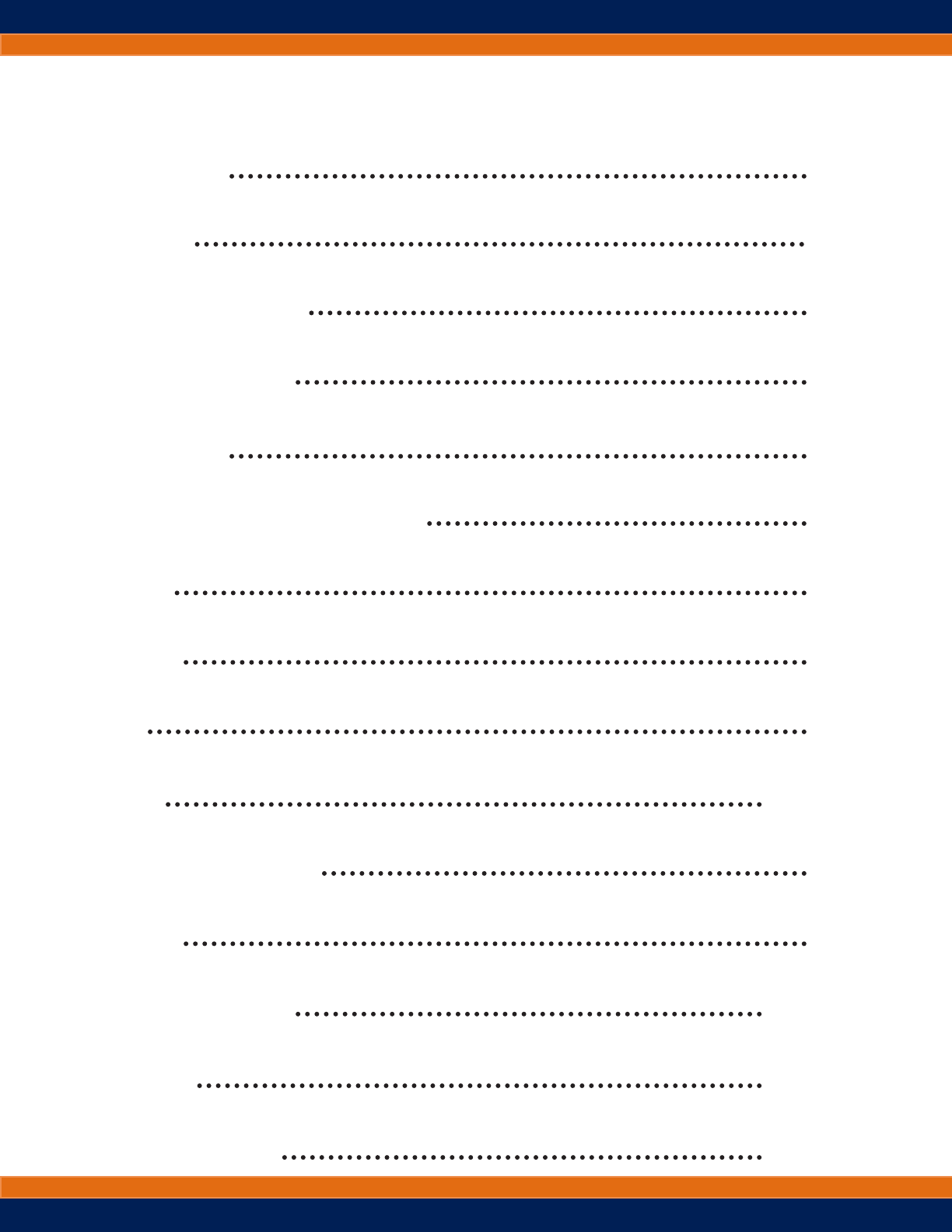
Table of Contents
Welcome Letter 2
Employment 3
The Management Team 4
Student Advancement 5
Pay Information 6
Go Paperless/Breaks and Holidays 7
On the Job 8
Dress Code 9
Hygiene 10
Sanitation 11-12
Safety and Sustainability 13
Harassment 14
Dining Center Policies 15-16
Cafe Policies 17-18
Contact Information 19-20
1

Welcome Letter
Dear Student Employee,
Congratulations on joining the Syracuse University Food Services Team!
We welcome you to the largest team of student employees at Syracuse
University. Food Services includes dining centers, the stadium, campus catering,
vending services, student centers, campus cafes, and convenience stores. This
manual was created to provide you with clear information and resources to help
you succeed as a Food Services employee.
It is important that you familiarize yourself with all of the information contained
here in order to get the most out of your employment. We hope you review and
master the following policies and standards.
Each venue is subject to its own unique rules that are not found in this
handbook. Please see your manager for location specific policies.
This manual is meant to answer the initial questions new employees have and
act as a reference for you throughout your experience in your workplace.
Further instruction is offered through the guidance of professional and student
management.
We are very excited for you to join the team!
Sincerely,
Syracuse University Food Services Team
2
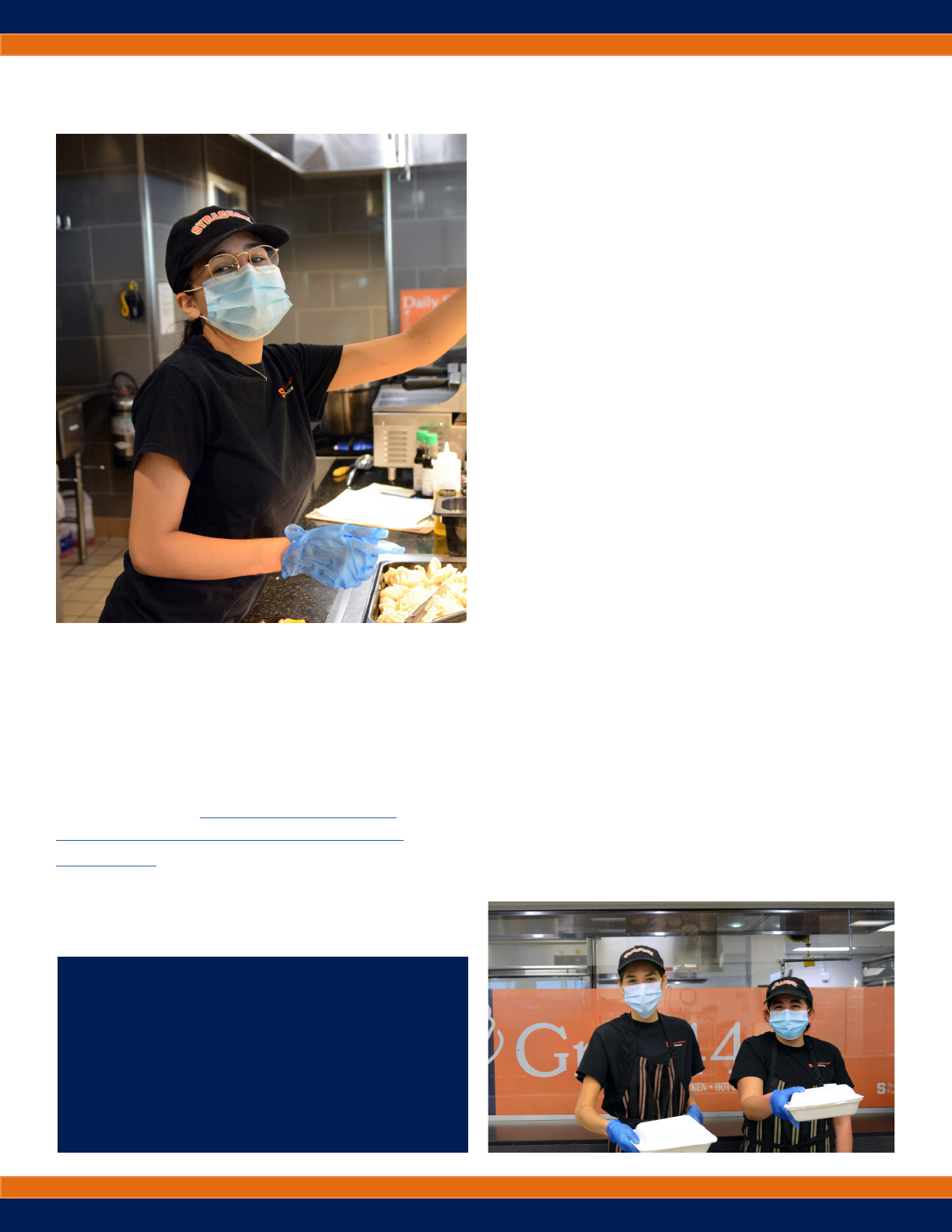
Eligibility to work on campus is confirmed through
the Student Employment Office at 210 Steele
Hall. An I-9 form must be filled out in person. You
will be asked for photo identification when filling
out your I-9. Refer to the Student Employment
Office’s website (https://www.syracuse.edu/
admissions/cost-and-aid/types-of-aid/student-
employment/) for accepted types of identification
and any questions regarding the I-9. I-9’s must
be renewed every three years if there is a break in
employment.
This online form, required by New York State,
notifies you of your wage rate, overtime rate,
and designated payday. This form must be
acknowledged via MySlice under the Employee
Services tab. Before your first shift, you will
receive an email in your Syracuse University email
asking you to acknowledge your pay notice to
remind you to complete this step of the hiring
process.
Employment
It is very important that we have all of your
up to date contact information including your
phone number, address, and email. Your email
must be your syr.edu email. You are responsible
for updating this information with your student
management staff and reaching out to receive any
notifications that you may have missed from your
management staff.
Eligibility to Work
Pay Notification
Contact Information
Important: You must complete your I-9 before
you begin working. No copies of identification
documents will be accepted. You must have
the originals with you when you complete the
I-9. If you are an international student, you
will complete an F1-J1 through the Student
Employment Office.
Personal Property
Please do not bring valuable items to work with
you (ipods, laptops, expensive coats, etc). We
cannot be responsible for lost or stolen items.
Lock your bags and put them in a safe location
while you are working. Our smaller units do not
have space for lockers, but if your unit has them,
use them. Report any problems to your supervisor
immediately.
3
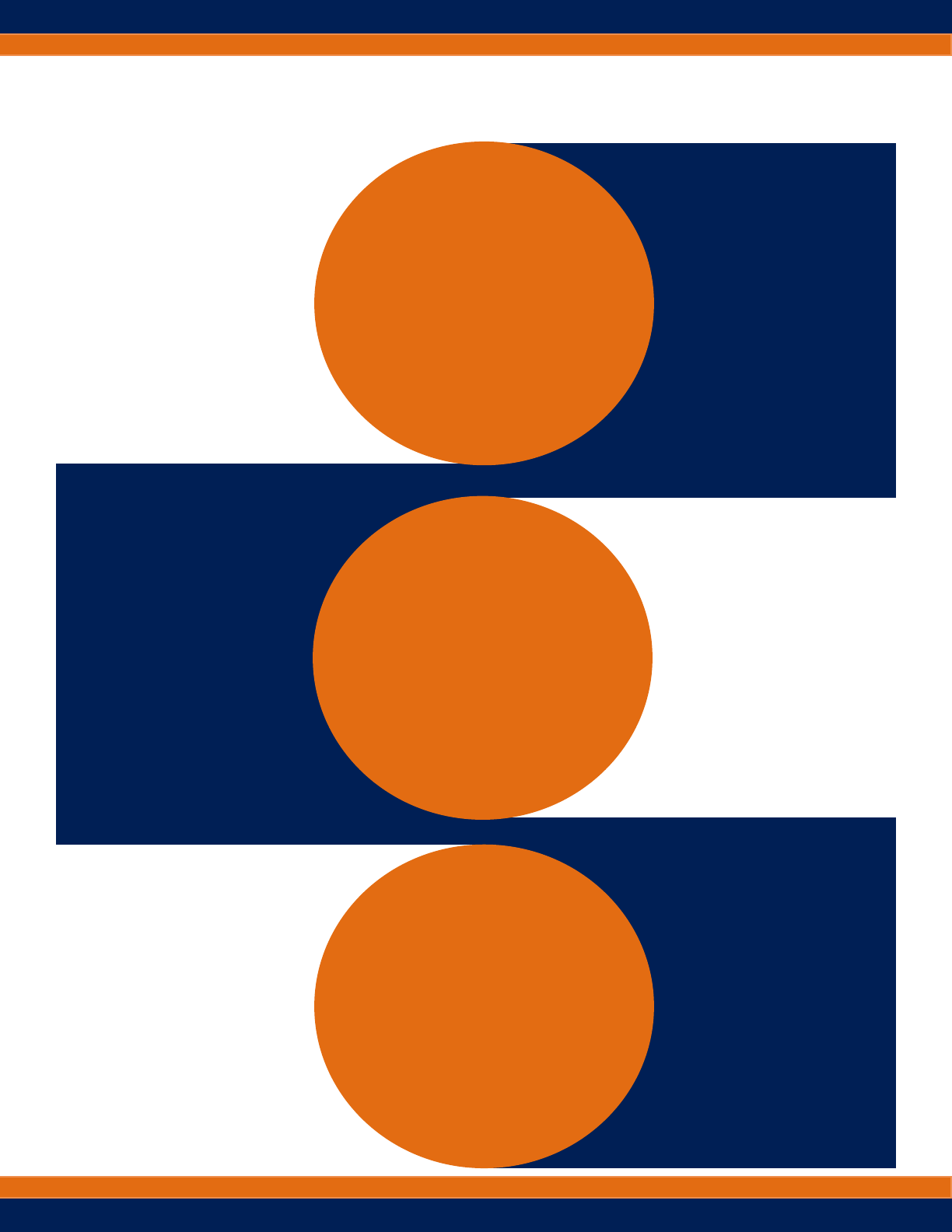
The Management Team
The professional
management makes policies
and sets overall objectives
for all employees in their
units, both professional and
student. Each unit has a staff
consisting of professional
managers and supervisors.
Professional management is
a great resource for students
who have questions about
advancement and unit
specific information.
The student managers of each
unit implement policies and
procedures among the student
staff. Student supervisors
report to the student manager
and professional management.
Student managers are a
bridge between professional
management and student
workers. If your student
manager cannot answer your
question, feel free to reach out
to professional management
or student coordinators.
The student coordinator works to
unify and direct the student
program. Through the
coordinator, student plans
to implement new ideas are
created. The coordinator
works as a liaison between
the student employees and
administrative staff. They will
work with you to resolve any
issues that cannot be resolved
at a unit level. If you have any
questions please reach out to
the student coordinator for
more information.
Student
Coordinators
Student
Managers
Professional
Management
4
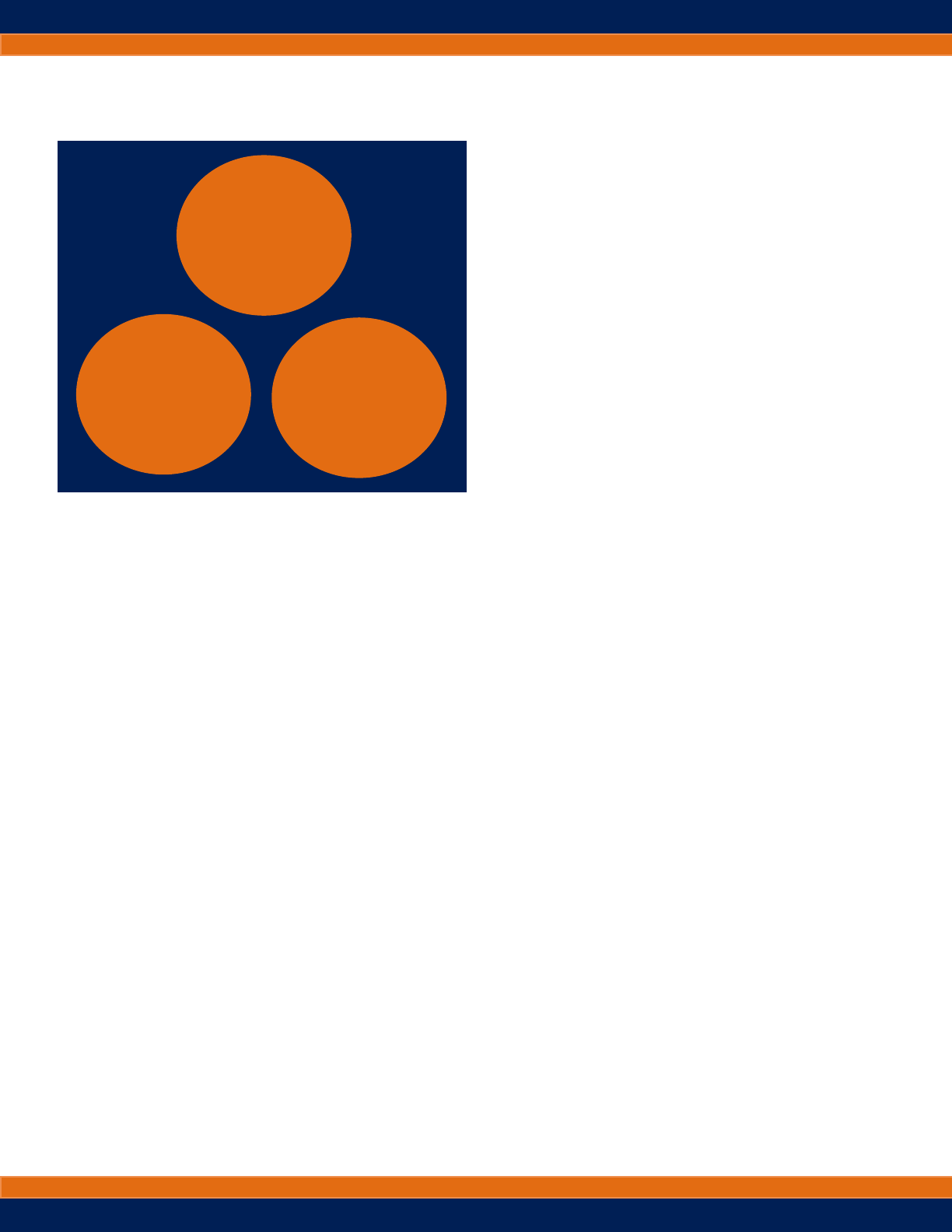
Food Services offers an outstanding opportunity
for promotion and job advancement. In addition,
all employees who have been employed for at
least eight weeks are encouraged to apply for
promotions such as student supervisor or student
management positions. As positions become
available, the information is distributed via
email. If you are interested in ways to boost your
resume with leadership skills and administrative
experience, this is a great opportunity.
Student Advancement
Student
Supervisors
General
Student
Employees
Student
Managers
Important: Your SUID will be used to clock you
in and out. You may ONLY clock yourself in and
out. Violating this rule is a terminable offense.
Make sure you have supervisor approval to clock
in and out. Whenever you clock in, you must be
prepared to work. You may not clock in and go to
the lockers or bathroom. At the end of your shift,
you must clock out before doing tasks unrelated
to work. Personal business should not be attended
to while on the clock. In the case of an emergency,
promptly speak to the supervisor on duty. Make
sure your supervisor gives you permission to
punch out for any personal business. If you must
use the restroom, please notify your supervisor so
that your station is not left unattended. Bathroom
breaks should not exceed five minutes.
Time and Attendance
A two week notice is required of all Food Services
employees who resign from their position. Food
Services employees are eligible for re-hire at the
end of each academic term based on the status of
their permanent record and prior performance.
Students must check with management for
the necessary paperwork. If you have been
terminated from one Food Services location,
you will be terminated from ALL Food Services
locations on campus and can not return.
Re-Hire Policy
If you are sick and unable to make a shift you
must contact your unit by phone. Excessive
absenteeism will be handled through the discipline
process. If you are sick and provide a doctor’s
note, this will void any disciplinary warning you
may recieve during the time period the note
encompasses.
We depend on all employees to be on time.
Students should be in proper uniform and
prepared to work when their shift starts.
Students should be at their post at the time their
shift is scheduled to start otherwise they will be
considered late. If a student is not at their shift on
time management will take disciplinary action.
Late Policy
Medical Situations
Inclement Weather
If the university is closed due to inclement
weather, all units remain open. Food Services is
dedicated to providing meals during these critical
times. Please report to work if it is safe to do so.
5
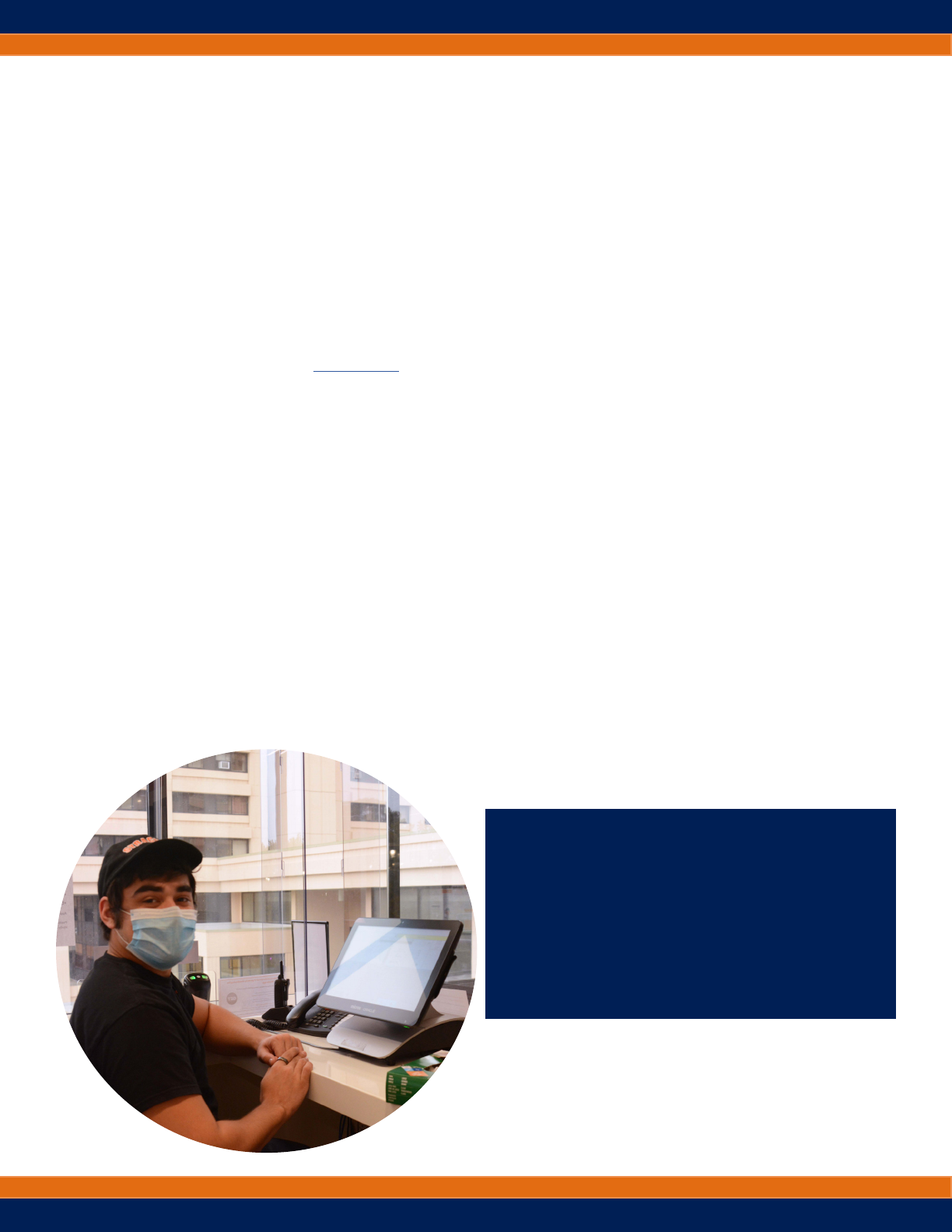
The Federal Work-Study program (FWS) was
designed to facilitate access to the on- and
off-campus job market for students with a
financial need. This program is backed by the
federal government through the Department of
Education. In addition to financial need, a student
must follow additional requirements as laid out on
the Human Resources website (hr.syr.edu/). If you
receive FWS, you will receive an award amount
which will be shown in your financial aid package.
Note: All Food Services employees who have
FWS or do not have a FWS award will get a
paycheck each week corresponding to how many
hours the employee has worked. Having a FWS
award does not mean that the paycheck goes
directly to your tuition. If your eligibility for FWS
changes, for example, you become eligible for a
Work-Study award the academic year after you
begin working with Food Services, please notify
your management staff so they can update your
information.
Pay Information
Students may not work off the clock. All
students are responsible for keeping track of
their hours worked. Students should not, under
any circumstance, exceed forty hours across all
Syracuse University jobs. International students
should not exceed twenty hours a week
across all Syracuse University jobs during the
academic term. Arranging your schedule across
your other positions at Syracuse University is not
the responsibility of management.
Federal Work Study
General Hour Limitations
Payroll
The pay period for all student employees runs
from Thursday morning to Wednesday night.
Thus, the paycheck you receive on Wednesday
is from the week ending on the previous
Wednesday. When you are first hired, it may
take an extra week to get your information into
the payroll system which may delay your first
check. If you have an issue or concern regarding
your paycheck, speak with your manager first. If
they cannot assist you, they will direct you to the
appropriate campus service. Paychecks can be
viewed on Myslice.
During the academic breaks such as summer
and winter break, international students
may not exceed forty hours across all SU
jobs. Please speak to your supervisor for more
information on when these hour limitations
apply.
6

Summer Vacation, Breaks and Holidays
During Summer Sessions and Maymester,
there are a limited number of shifts available.
In April of each spring semester, students will
be asked to submit their name for summer
employment. If you wish to be chosen for
employment, you must sign up with your manager.
Spots and hours are limited. This is not a
full-time position and is reserved for Food
Services employees who show outstanding
performance. Student supervisors and managers
receive preference for summer positions. If you
have questions about summer employment,
please contact your respective student
coordinator via email or by phone.
Direct deposit is strongly encouraged. Once direct
deposit is set up, it will stay with the employee for
the entire time they are in school. If a student has
direct deposit, paychecks from anytime during the
year, even during breaks, will be directly deposited
into the account that the student has designated
via Myslice. Direct deposit eliminates the risk
of a check being lost in the mail, or anything else
of this nature. If a paycheck sits at a unit or in
the student office for more than six months, the
check will have to be reissused to the student at
the payroll office, located at 201 Skytop Rd. For
any questions regarding paychecks over break,
please reach out to your student coordinator or
professional management staff.
Paychecks Over Break
Help Us Go Paperless!
DIRECT DEPOSIT
Benefits:
1) Funds are available on payday.
2) Eliminates travel to pick up paycheck and trips
to the bank.
3) Lost paychecks will become a thing of the past.
4) No check cashing fees
5) Get cash out of the 20 ATMs located across
campus.
6) You will get your paycheck even if you are out
of Syracuse.
7) Set up is free of charge!
Work Opportunities
4) See orange banner with arrow dropdown
choose employee self service
5) Click on Payroll Tile. On the left side of the
screen there are a list of tasks you can do
relating to payroll. Select Direct Deposit.
6) Have the following information ready to
complete the form:
Routing Number (Ask your bank)
Account Number (Ask your bank)
Account Type (Checking or Savings)
Deposit Type (Percent)
Amount or Percent (100)
Deposit Order (1)
For additional assistance or to deposit money into
more than one account contact payroll@syr.edu.
(See contact information)
How to Set Up Direct Deposit:
1) Log into Myslice using your NetID and
password.
2) Locate “Employee Services” in the center
column and click on the orange box
“Human Resources and Payroll Services”
3) Select the Payroll box. (Pictured on Right)
Human Resources
and
Payroll Services
7

Student meal and break policies vary between
cafes and dining centers. Please see the Dining
Center Policies or the Cafe Policies section in
the back of this handbook for more information.
Employees are not allowed breaks longer than
those indicated in the next section.
Greater than 4 hours: 15 minute paid break.
Greater than 6 hours: 30 minute unpaid break.
Meals and Breaks
On the Job
Supervisor and Management Training
7 Steps to Workplace Professionalism
1) Maintain a positive attitude about the job
you are doing.
2) Exemplify good manners while working.
3) Take initiative, be conscientious about
your duties, and play an active role during
your shift.
4) Work together as a team to attain efficiency,
speed and superior performance.
5) Always remember that the customers are the
purpose for our job and not an
interruption of it.
6) If you find yourself in an unfriendly situation,
please take it to your supervisor or
manager immediately. Do not let the
situation escalate.
7) Always treat your co-workers (both general
employees and student management)
and customers with the respect they
deserve and you expect in return.
Student management and student supervisor
training will be done online. Topics include but are
not limited to sexual harassment training, allergy
awareness training, sanitation, food services
policies and procedures as well as anything
administration feels is important to help you thrive
as a student leader.
Break Time Allotment
General student employees will be trained at
their place of hire. Food Services takes pride in
hands on, one-on-one training at an individual
level. Student managers, student supervisors, and
professional management all take part in an online
student training that will be distributed via email.
General Employee Training
Hazard Communications Training
Before leaving your station for your break, you
must inform your supervisor. This is to ensure
customer satisfaction at all times and allow
management to keep track of staff in case of
an emergency. Food may only be consumed
within the allotted break period and in the dining
area. At no point should you consume food or
beverages in service areas. Remove gloves and
aprons before taking your break. Gloves are not
to be worn while eating food. Do not sit at high
top tables. Grab a clean apron and new pair of
gloves to replace the ones you were wearing
previously when you return to your shift.
Hazard Communications training is an online
training that helps prepare each employee for the
chemicals they will encounter in the workplace,
such as mop solution, degreaser, and sanitizer
solution. Safety Data Sheets (SDS) are located
in each unit to reference when needed. Student
management will send you training information
when you are hired. This must be completed
within two weeks of your date of hire.
8
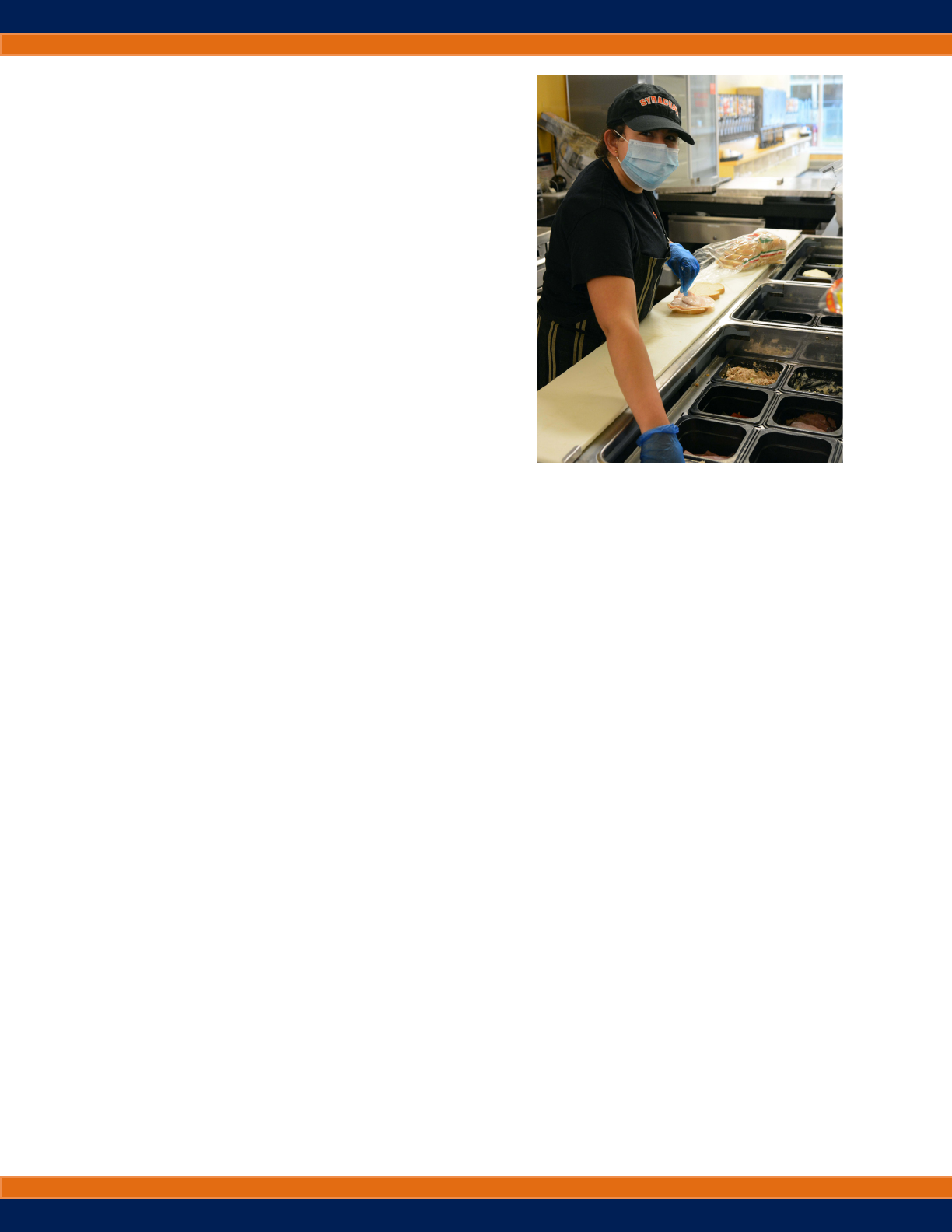
Dress Code
Socks or stockings and shoes must be worn
at all times. Shoes should be sneaker style with
rubber treads. No sandals or open-toe shoes are
permitted at any time, for your safety. Shoes must
be closed toed/closed heeled.
Food Services will provide you with a hat and a
t-shirt that you must wear during your shift. If you
arrive to work without the proper work attire, you
will need to go home and get it BEFORE you are
permitted to work.
All loose hair must be pulled back off your face
and kept under your hat.
Aprons are required. These will be supplied by
Food Services.
You must wear jeans, khakis, or black pants at
all times. At no time may you wear shorts, skirts,
sweatpants, joggers, leggings, jeggings, or capri
pants. Your clothes must be clean with no holes or
tears in them.
Face masks are required, one will be provided
to you when you arrive to your shift.
No ear buds, air pods, or wireless music devices
while working on your shift.
Uniform
Hair Restraint
Unless otherwise specified, all Food Services
employees must wear an issued hair restraint (i.e.
a uniform hat, hair net, or a beard guard) in order
to minimize hair contact with employee hands,
food, and food-contact surfaces. Hair and beards
must be kept neatly trimmed. Food Services
employees who are actively peforming duties
of the following titles: Bartender, Wait Staff,
Cashier, Checker, Driver, Warehouse, Courier,
are not required to wear a hair restraint. All other
staff must wear hair restraints. Beard guards and
hairnets are available to all employees.
Nails
Nails must be smooth & neatly trimmed with no
more than 1/8” over tip of finger. Artificial nails,
nail jewlery, nail stickers, and nail polish are NOT
permitted.
Jewelry
Only wedding rings may be worn and must be
covered by a glove. Chains must be worn inside
uniform, not visible to others. Piercings must be
secure; no large dangling earrings. Medical ID
bracelets are allowed. Smart watches, fitbit’s, or
any type of watch is prohibited.
Gloves
Gloves should be worn at all times when handling
food or food utensils. Using the correct size gloves
will make them easier to put on. Blue gloves are
used for food handling and handling clean utensils.
Clear gloves are used for cleaning. Employees
may clean without gloves, but they are available
for use. Clear gloves are not to be used when
handling food under any circumstances. Only
blue gloves are permitted when handling food.
Gloves should be changed when they are torn or
soiled and when switching tasks, such as going
from prepping vegetables to cutting chicken, to
avoid cross contamination.
9

Hygiene
Food Services employees should come to work
clean, showered, and wearing clean clothes.
Personal hygiene is important when working in
a food services establishment. On the job it is
important to wash your hands when changing
tasks or when your hands are soiled. It is also
imporant to wash your hands after using the
restroom. Hand washing should be done with soap
and warm water, making sure to clean underneath
every finger nail (See sanitation pg. 12-13),
Washing should take at least twenty seconds to
be effective.
Personal Hygiene
Food Allergy Awareness
Food allergies are an important topic to think
about when working in Food Services. The
following definitions are important to know so
that we can best serve our customers who are
affected by food allergies and intolerances.
Another definition to be familiar with is cross
contact. This occurs when a food that does
not itself contain any food allergens becomes
contaminated with an allergen during food
preparation, cooking, storing, or serving. An
example of this would be sharing utensils between
food dishes.
Food Allergy Do’s and Don’ts
DO:
1. Read labels.
2. Understand and learn about food sensitivities.
3. Keep food covered.
4. Wash hands and change gloves.
5. Identify any recipe changes on the line.
6. Seek a supevisor or manager if a student
asks you about food allergies or
ingredients in any food item.
DON’TS:
1. Add “secret” ingredients to food.
2. Substitute ingredients without notification.
3. Use utensils for more than one food item; even
when in a hurry.
4. Treat food allergies and intolerances lightly!
5. Be afraid to seek help with a food service task.
6. Store raw meats and foods with ready to eat
foods.
7. Take shortcuts!
Syracuse University Food Services
Registered Dietitian
For any questions or concerns about allergies
or special diets, please contact the
Food Services Registered Dietitian.
Ruth Sullivan, MSEd, RDN, CDN
Phone: 315-443-9884
Email: resulliv@syr.edu
Listed below are some signs/symptoms that will
help you recognize a food allergic reaction:
Hives and/or rash
Swelling of the lips, face, tongue and/or throat
Wheezing and/or trouble breathing
Tingling sensation in mouth
Itching and/or Eczema
Nasal congestion
Upset stomach/cramps and/or bloating
Diarrhea/dizziness and/or fainting
Anaphylactic shock (Multi-system)
Food Allergy- any adverse reaction to a food
that involves the immune system.
Food Intolerance- any adverse reaction to a
food substance or additive that involves the
metabolism or digestive system, not the immune
system.
10
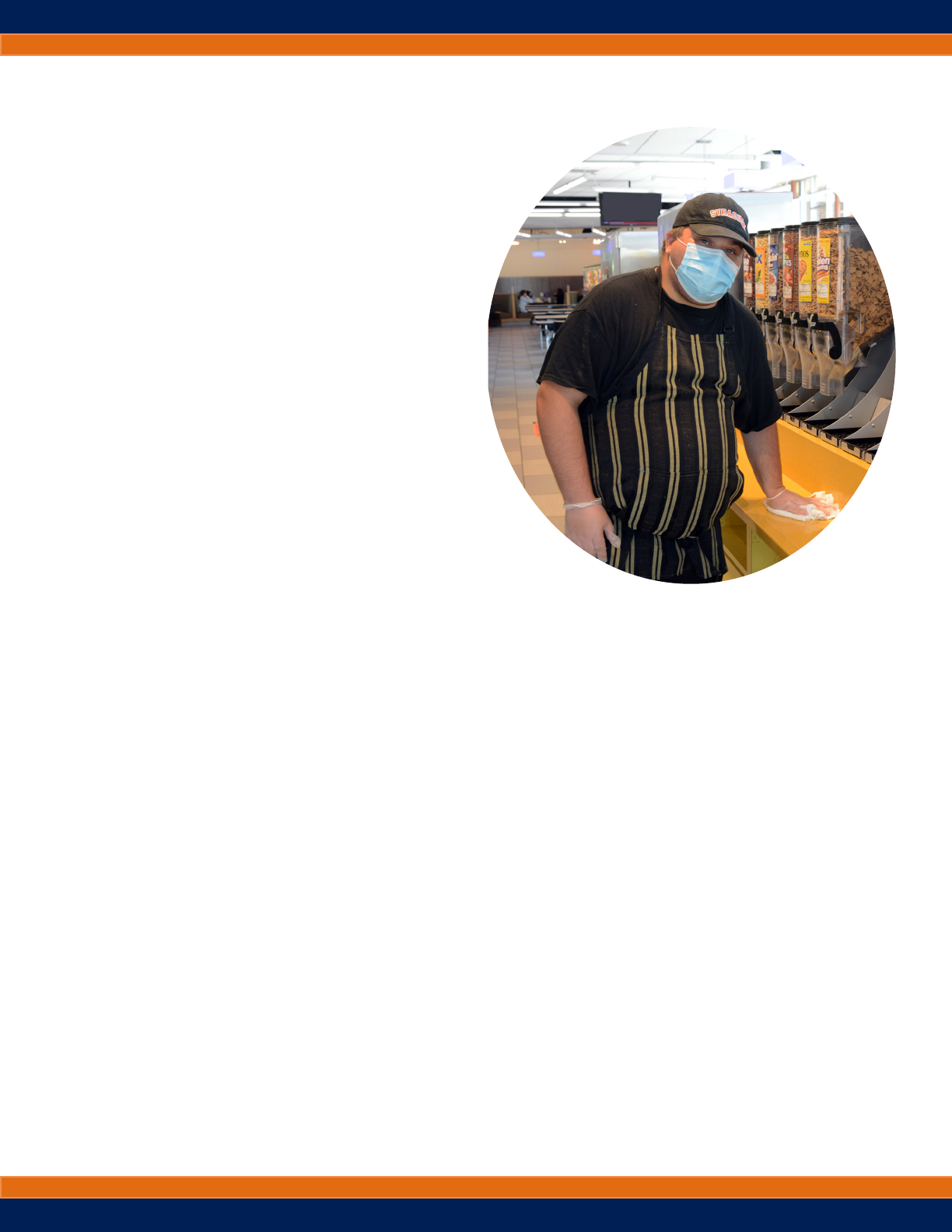
Sanitation
You must wash your hands, using the double wash
method, before putting on gloves. Our policy
states that disposable gloves and/or utensils must
be used during service or preparation of food
that requires no further cooking. Do not rely on
gloves alone for food safety. Bacteria multiply
quickly on hands from the moisture and heat that
accumulates inside the glove. Gloves should be
changed frequently
The Double Wash Method:
1. Turn on the water using foot pedals or the hand
that did not touch the toilet paper. Wet hands
with very warm water (110-120 degrees F).
2. Holding the fingernail brush by the fingers
that touched the toilet paper, place a generous
amount of soap on the fingernail brush and
fingers.
3. Build a good lather.
4. Vigorously brush the fingertips of the hand
that used the toilet paper, under the fingernails
and then repeat on other hand, fingertips and
fingernails.
5. Rinse the hands and fingernail brush
thoroughly. Put the fingernail brush down.
6. Soap the hands again, rubbing them to
produce a good lather, espeically in between
fingers. Lather up to the sleeves.
7. Rinse the transient microorganisms off the
hands with a lot of very warm water.
8. Paper towel dry.
The Single Wash Method includes steps 6-8
and is to be used in between changing gloves
and when handling raw food and touching
contaminated surfaces while working in the
kithen. Handwashing should take 20 seconds if
you are thorough and should only be done in a
designated hand washing sink.
Handwashing
Injuries
Calibrating Thermometers
Calibrating your thermometers is an important
piece of keeping food safe and making sure you
are getting accurate temperature readings. To
properly calibrate, you must use the Ice Point
Method. Here are the steps that you should know:
1. Get a cup and fill it to the top with ice. Add
water until the cup is full.
2. Turn on your thermometer and submerge it in
water. The temperature must reach 32˚ F and
stay there for six seconds.
3. If your thermometer does not read 32˚ F for
six seconds return your thermometer to the
office and notify a supervisor.
If you are hurt or injured on the job in any way
please notify your supervisor as quickly as
possible to fill out an accident report. If you have
an open hand wound such as a cut or scrape, you
must cover it with an impermeable cover and then
put gloves on over top of it. Do not wait to tell
your supervisor about an injury.
11

Sanitation Continued
Temperatures
Cross Contamination and Prevention
Cleaning
Cleaning is an important part of keeping our
facilities and food safe for the customers. Here are
some general definitions you should know.
Cleaning: Removes food and dirt from a surface
Sanitizing: Reducing the number of pathogens on
a surface to safe levels
Food contact surfaces must be cleaned and
sanitized before each use, between tasks and after
each use. Below are the steps to make sure that
surfaces are clean.
1. Clear the surface of debris, food and other
objects.
2. Wash the surface with hot soapy water.
3. Rinse the surface with water.
4. Sanitize the surface with sanitizer solution.
(PINK)
It is important to recognize that these same steps
apply to dishwashing. You must first wash the
utensils with hot soapy water, rinse the item and
then submerge it in sanitizer solution. You may
also use the dishwasher.
Temperature accuracy and management is a
crucial part of making sure food is safe to eat.
Below are important minimum cooking
temperatures that you should know for different
types of prepared food.
165˚ F for 15 seconds
Poultry-including whole or ground chicken,
turkey or duck
Stuffing made with fish, meat, or poultry
Stuffed meat, seafood, poultry, or pasta
158˚ F for 15 seconds
Ground meat-including beef, pork, and
other meat
Injected meat, including brined ham and
flavor-injected roasts
Mechanically tenderized meat
Ground seafood-including chopped or minced’
150˚ F for 15 seconds
Pork
145˚ F for 15 seconds
Seafood-including fish, shellfish, and
crustaceans
Steaks/chops of beef, veal, and lamb
145˚ F for 4 minutes
Roasts of pork, beef, veal, and lamb
Roasts may be cooked to alternate
temperatures and times based on the oven
and type of roast.
140˚ F (no minimum time)
Fruits, vegetables, grains (e.g., rice, pasta), and
legumes (e.g., beans, refried beans) that
will be hot held for service
175˚ F (no minimum time)
Tea - Please read the section on calibrating
thermometers to make sure that you are
getting an accurate temperature reading.
Cross Contamination is the transfer of
bacteria from one surface to another. Cross
contamination is easily prevented by using the
correct sanitation procedures, as well as making
sure that food is held at the correct temperatures.
We try to prevent cross contamination because it
can cause food borne illness. Food borne illness
is when a disease is transmitted to people
by food. These diseases can range from mild to
severe. Food Services is committed to keeping its
customers safe from food borne illness.
12
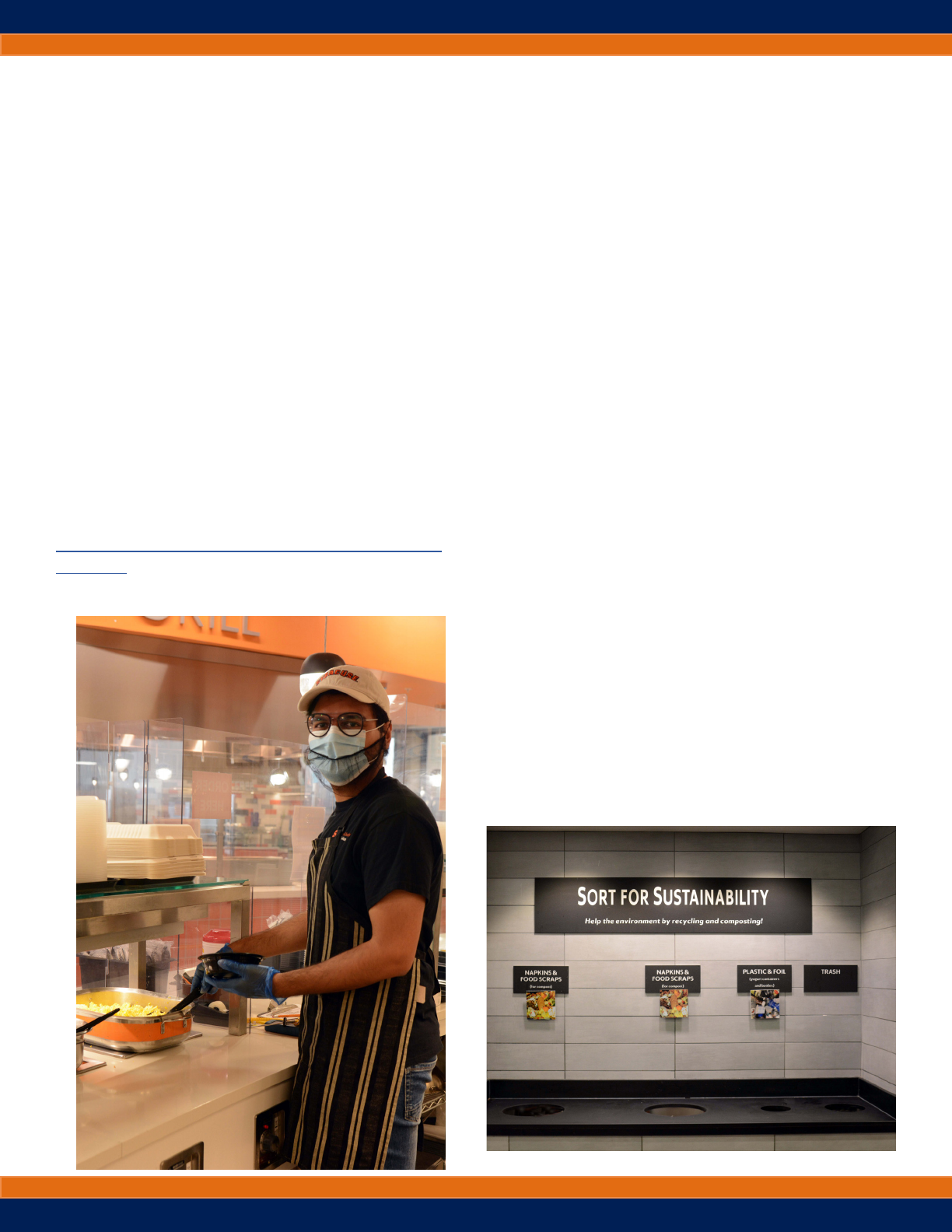
Safety and Sustainability
DPS Safety Escort Program
Campus shuttle buses are the first safe mode
of transportation that all students should refer
to before using the DPS Safety Escort Program.
When the bus system is running, DPS may walk
you to or drop you off at the closest bus stop. DPS
staff will provide a walking or riding safety escort
from on-campus or near-campus locations to
another on-campus location, or if necessary, your
near-campus residence. If the bus systems are not
running, the escort may be directly to a residence
hall or south campus residence. This service is not
a commuter ride service, and is to be used as
a last resort. Please check out the link below for
more information on the safety escort program:
https://dps.syr.edu/services-resources/safety-escort-
program/
Sustainability
Food Services has a commitment to sustainability,
and recognizes the positive impact of purchasing
food from local suppliers and farms. Food
Services is continuing to expand its connections
throughout Central New York. Reusable bottles
are given to students to use throughout the year
in the dining centers. Dining centers also have
reusable eco-friendly containers to take food on
the go.
Food Services and OCRRA (Onondaga County
Resource Recovery Agency) have partnered on a
composting program that helps divert food waste
from dumpsters and trash bins, returning it back
to nature. Fruit and vegetables collected from
food preparation along with students’ meal scraps
are gathered daily for composting. In accordance
with OCRRA, the following items are recycled:
Glass
Cans
Plastic
Paper and corrugated cardboard
Batteries, ink, and toner cartridges
Recycling and Composting
13

Harassment
Harassment
Syracuse University has a policy of employing,
advancing in employment, and otherwise
treating individuals without discrimination or
harassment on the basis of race, color, creed,
religion, sex, gender, national origin, citizenship,
ethnicity, marital status, age, disability, sexual
orientation, gender identity and gender
expression, veteran status, or any other status
protected by applicable law to the extent
prohibited by law. The University prohibits
any such discrimination or harassment. No
person will be subject to discipline, retaliation,
intimidation, or any adverse treatment because
he or she makes a complaint of discrimination
or harassment in good faith or has participated
in the investigative process in any way. Food
Services will not tolerate harassment in any
area. We pride ourselves on providing a safe
and respectful work environment for all
employees. If you ever feel uncomfortable
or harassed in any way please reach out to
the resource that you feel most comfortable
utilizing. This includes but is not limited too
EOIRS, HR, student coordinators, managers,
or the cafe and dining director.
Harassment can include but is not limited to:
Epithets, slurs, or negative stereotyping
Threatening, intimidating, or hostile acts
Denigrating jokes
Written or graphic material that denigrates
or shows hostility or aversion toward a group or
individual believed to be part of a particular group
Written or graphic material that is placed on
walls or elsewhere on Univeristy premises, or is
circulated in the workplace
Using electronic equipment to distribute, view
or otherwise disseminate materials or messages
that are abusive, profane, threatening, defamatory
or offensive
Sexual Harassment
Syracuse University defines sexual harassment
as unwelcome behavior of a sexual nature that
relates to the gender or sexual identity of an
individual that has the purpose or effect of
creating an intimidating or hostile environment
for study, work, or social living. The policy covers
activity both on campus and off.
There are two forms of sexual harassment claims
recognized under the Title VII of the Civil Rights
Act of 1964: “quid pro quo” claims and “hostile
environment”.
Quid pro quo: (This for that) Involves harassment
in which a supervisory employee or academic
superior demands sexual favors in exchange
for job or academic benefits over which that
supervisor has some control or influence.
Hostile work environment: Involves unwelcome
behavior of a sexual nature that creates and
intimidating, hostile environment. This standard
prohibits not only behavior intended to create a
hostile environment, but also behavior that has
the reasonably foreseeable effect of interfering
with an individual’s work, academic performance
or social living.
Sexual harassment can include but is not limited
to visual acts such as leering, ogling and physical
gestures, as well as physical or verbal acts such as
suggestive remarks, hugging, pinching fondling,
and more. Please follow the link below for more
information about Syracuse University’s policy on
harassment in the workplace:
https://policies.syr.edu/policies/university-governance-
ethics-integrity-and-legal-compliance/non-
discrimination-and-anti-harassment-in-employment/
14

Dining Center Policies
1) Inform a member of the management staff
that you are in need of a sub. Management is not
responsible for finding you a sub, but they are
here to guide you through the process if you are
confused or have questions.
2) Sign up on your unit’s sub list. Include your
name, shift date, time of shift, and if you are
dropping the shift permanently.
3) Have a supervisor or student manager to
approve your shift on the sub list.
Note: This must be approved by a member of
student management, or a member of professional
management.
4) If you find a sub, the sub must request
their name be placed on the sub list in order to
finalize the change and relieve you of your shift
responsibility. Management must approve before
it is final.
If you do not show up for your shift and a sub has
not been found, you will receive the appropriate
discipline below.
Call, No Show: Issued if you informed a member
of the management team within the specific time
parameters of your absence.
No Call, No Show: Issued if you did not inform
anyone about your absence.
*See disciplinary policy, page 17.
As a student employee, you are responsible for
all of your shifts. Therefore, if you cannot work a
shift, it is your responsibility to find a sub. Please
follow these simple procedures for finding a sub:
How to Sub a Shift
Early Move-In
At the beginning of each academic year, Food
Services allows employees the privilege of
moving into the residence halls earlier than
other upperclassmen. In order to be eligible for
early move in, you need to be scheduled to work
during first year student orientation. Please ask
your manager about receiving early move in
permission. This must be requested before you
leave for the summer or winter breaks.
Subbing procedures differ at each unit. It is
important to familiarize yourself with the sub
policy specific to your workplace.
Students are entitled to one meal before or
after their shift. If a student chooses to have
a meal before their shift, they must make sure
they are finished before their shift begins. If an
employee chooses to use a take-out box for their
complimentary meal, they must swipe their SUID
for it.
Meals and Breaks
Scheduling
When a student worker is hired as a general dining
employee, the student chooses their schedule
for the semester. Schedules are not written on a
weekly basis because students’ class schedules
do not generally change weekly. There are times
during the semester, usually during finals weeks,
when separate temporary schedules will be
implemented. Please refer to your management
staff to sign up for the temporary shifts.
Scheduling back-to-back shifts is prohibited.
During the temporary schedule, every employee
will be expected to work the same amount of
shifts that they work during the regular semester
schedule. Subbing procedures may change when
a temporary schedule is being used at a dining
center. Please ask your student supervisor or
student manager for more information.
15

The Dining Center Discipline Policy
Note: Supervisors and managers may document employees for offenses that are not explicitly
mentioned below. Points are all up for review based on student and professional management
discretion. Employees with five or more points are eligible for termination and will have a formal
meeting with the student manager(s).
1 POINT OFFENSES
Excessive socialization
Unauthorized cell phone use
Not wearing appropriate uniform
Clocking in/clocking out more than 5
minutes or less than 30 minutes late or early
Improper completion of tasks or poor job
performance
Poor personal hygiene or violation of health
& safety policies
2 POINT OFFENSES
Intentional waste of materials, resources,
or food
Failure to obey sub binder policies
Clocking in/clocking out more than
30 minutes late/early
Negligent job performance
“Call, no show”more than one day before
3 POINT OFFENSES
Taking unauthorized breaks or doing
schoolwork on the clock
Disrespect, rudeness, or insubordination
Failure to attend mandatory meeting
“Call, no show” same day more than
2 hours*
4 POINT OFFENSES
“Call, no show” less than 2 hours*
“No call, no show”
5 POINT OFFENSES
Time theft
Insubordination and/or harassment
Theft of, or intentional damage to, property
Physical violence or the threat of physical
violence
Forgery, falsification or unauthorized
alteration of records (time cards, DWs, etc.)
Intentionally clocking in or clocking out for
another employee
Working under the influence of alcohol,
drugs or other intoxicants
*“Call, No Shows” must be made during
operating hours via email or phone call. Any
attempt to call out after operating hours will
be considered next day. Operating hours vary
between units so please ask management staff
when your units are open.
Appeals System
In the event a student is terminated from Food
Services, an appeal system is in place for those
who would like to contest their termination. If
you feel that you have been unfairly terminated
and that you should be allowed to work in
other food services locations on campus,
please reach out your student coordinator.
For dining center terminations please email:
dcstudentcoordinator@syr.edu.
16
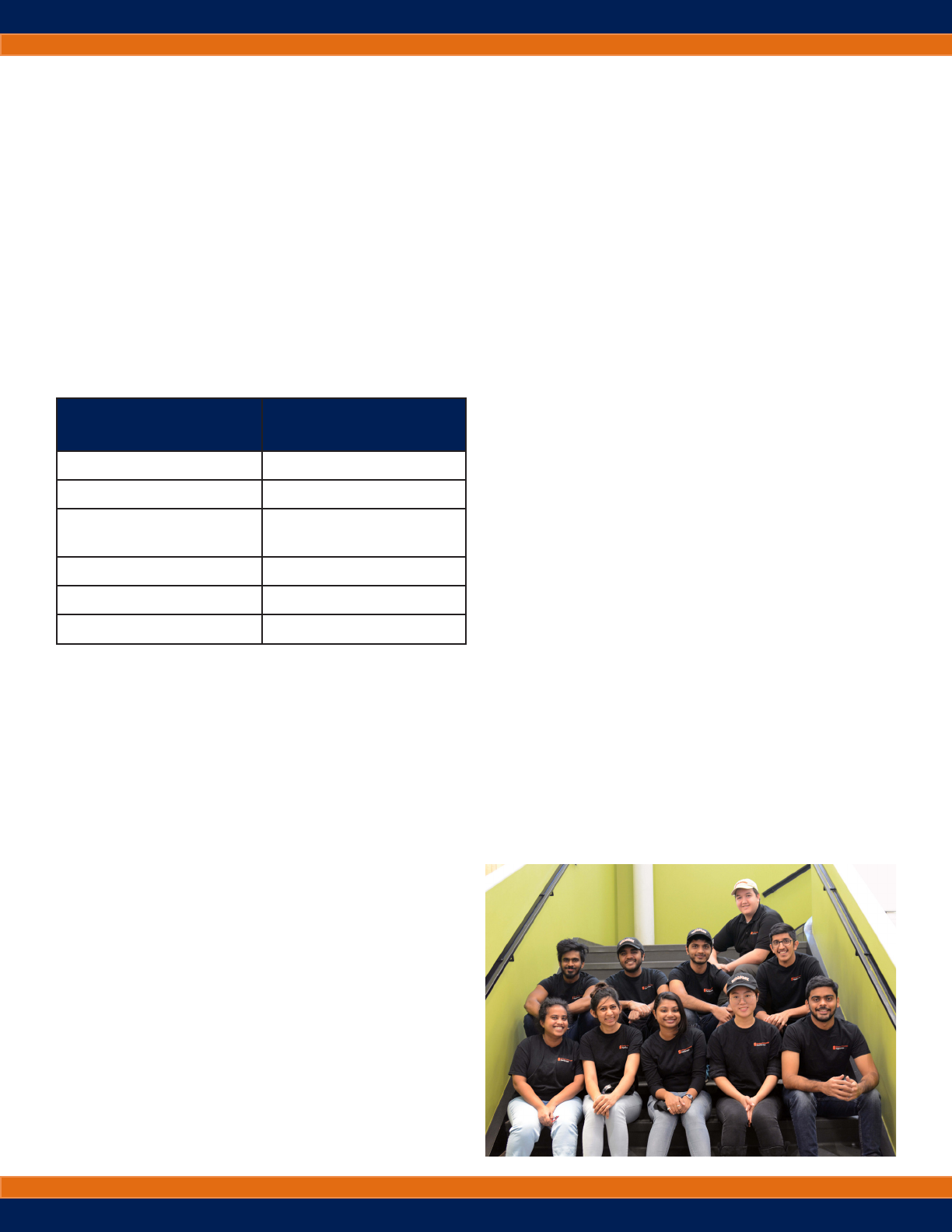
Cafe Policies
How to Sub a Shift
Meals and Breaks
Everything related to the sub-book must be done
in person at the student office (Goldstein Alumni
Faculty Center- Basement).
1) You can only sub your shift two times during a
semester.
2)You must give 48 HOURS NOTICE (BUSINESS
DAYS ONLY) in order to sub your shift
(weekend days ARE NOT business days).
3) Once you have requested off, you are required
to take another person’s shift. Once you
have done this you are no longer
responsible for your shift.
4) If you find someone to take your shift they
must currently work for us in one of our
units, then they must personally contact
the student office to tell Deena they are
going to work.
It is your responsibility to make sure the
student contacts us and accepts the shift.
If you do not contact us you will recieve a
disciplinary warning for not attending the shift.
(If you find your own sub you do not have to
take another shift from the sub book).
5) A person from the office must approve and
initial the shift you are planning on subbing
or taking.
Scheduling
Schedules are kept in the student office. All
schedule changes must be made in person.
Schedules are in effect for the entire semester, up
until the last scheduled day of classes. Separate
finals schedules will be posted a week prior to
finals and are voluntary.These schedules can be
found in your unit. Although picking up finals
week shifts are optional, once you have signed up
for a shift attendance is mandatory.
If you are no longer able to commit one of your
regular academic term shifts and would like to
drop it, you must give two week notice. This is
neccessary for you to be eligible for rehire in the
future. If your shift is filled before one week has
passed you will be excused from that shift. Calling
in sick to your last shift may result in termination.
Employee meals are intended to replace the meal
that you are working through (at that location).
Your supervisor will provide you with a meal slip
that the cashier will ring up. If student employees
are not entitled to a break, they may eat before or
after their shift. If they have a class to go to, they
can take their meal to go with permission of the
supervisor.
DAYS OFF IN BOOK BY 9 A.M.
TWO DAYS PRIOR
MONDAY THURSDAY
TUESDAY FRIDAY
WEDNESDAY MONDAY
THURSDAY TUESDAY
FRIDAY WEDNESDAY
SATURDAY & SUNDAY THURSDAY
17

Cafe Discipline Policy
DISCIPLINARY OFFENSES
Excessive socialization
Unauthorized cell phone use
Not wearing appropriate uniform
Clocking in/clocking out late or early
Improper completion of tasks or poor job
performance
Poor personal hygiene or violation of health
& safety policies
Intentional waste of materials, resources
or food
Failure to obey sub binder policies
Negligent job performance
“Call, no show”
Unreported cash drawer error
Taking unauthorized breaks or doing
schoolwork on the clock
Disrespect, rudeness, or insubordination
Failure to attend mandatory meeting
“No call, no show”
Time Theft
Listed below are offenses that may result in disciplinary action. Please familiarize yourself with
each offense and note that supervisors and managers may document employees for offenses
that are not explicitly mentioned below. Employees who have committed one of these offenses
will be contacted by management staff . Termination and disciplinary action will be determined
based on management discretion and the employees disciplinary history.
Insubordination and/or harassment
Theft of, or intentional damage to, property
Physical violence or the threat of physical
violence
Forgery, falsification or unauthorized
alteration of records (time cards, DWs, etc.)
Intentionally clocking in or clocking out for
another employee
Working under the influence of alcohol,
drugs or other intoxicants
Offenses are all up for review based on
management discretion.
Appeals System
In the event a student is terminated from Food
Services, an appeal system is in place for those
who would like to contest their termination. If
you feel that you have been unfairly terminated
and that you should be allowed to work in other
food services locations on campus, please
reach out your student coordinator. For cafe
termination appeals please contact Deena Capria
at dmcapria@syr.edu.
18
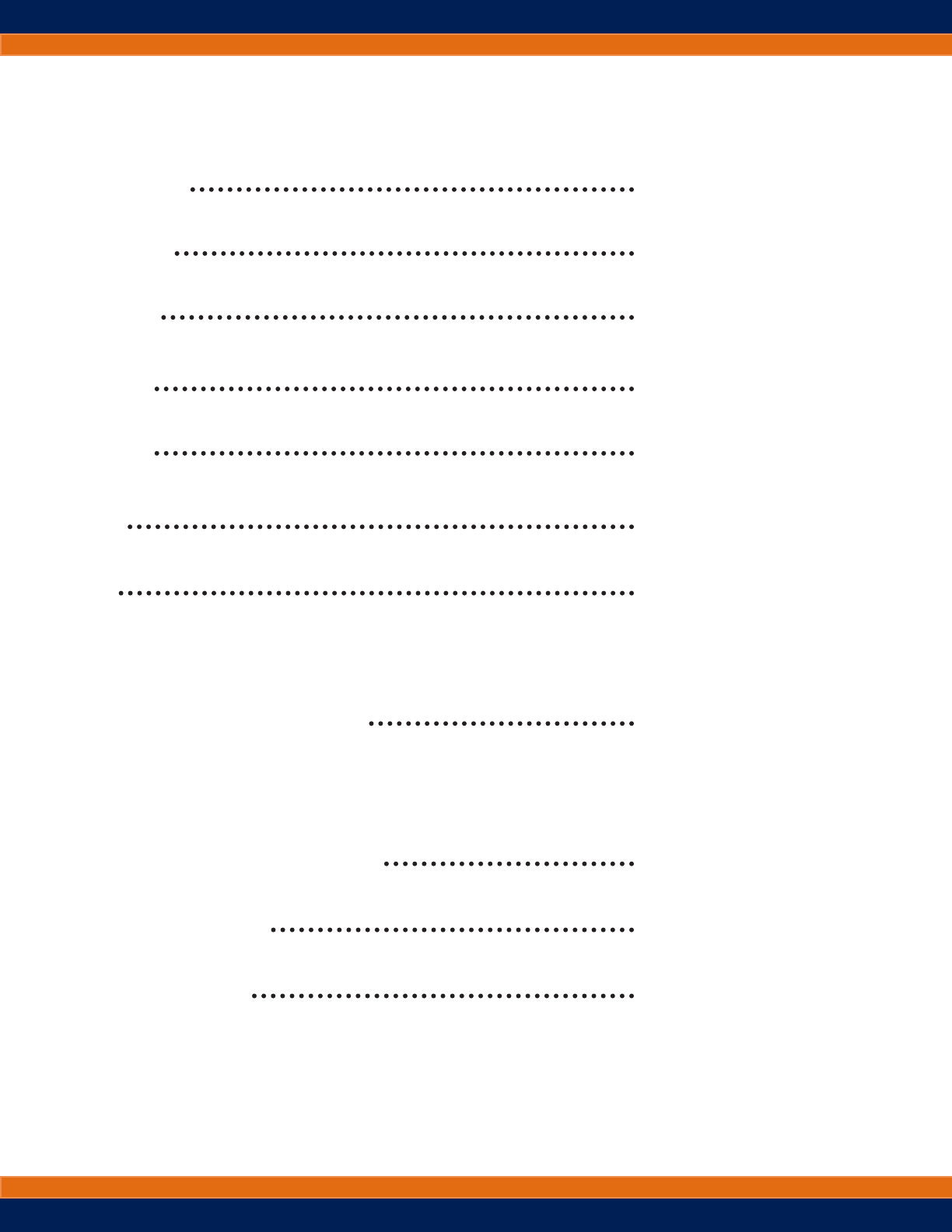
Dining Locations and Contact Information
Ernie Davis Ph: 315.443.1450
Brockway Ph: 315.443.3069
BBBistro Ph: 315.443.1636
Graham Ph: 315.443.2421
Junction Ph: 315.443.3594
Sadler Ph: 315.443.2449
Shaw Ph: 315.443.2383
Other Contact Information:
DPS Safety Escort Program Ph: 315.443.SAFE
Equal Opportunity, Inclusion, and Resolution Services Ph: 315.443.4018
Human Resources (Option 1) Ph: 315.443.4042
Payroll (Option 2) Ph: 315-443-4042
Sue Bracy Ph: 315.443.5285
Email: smbracy@syr.edu
Dining Center Student Coordinator
Email: dcstudentcoordinator@syr.edu
19
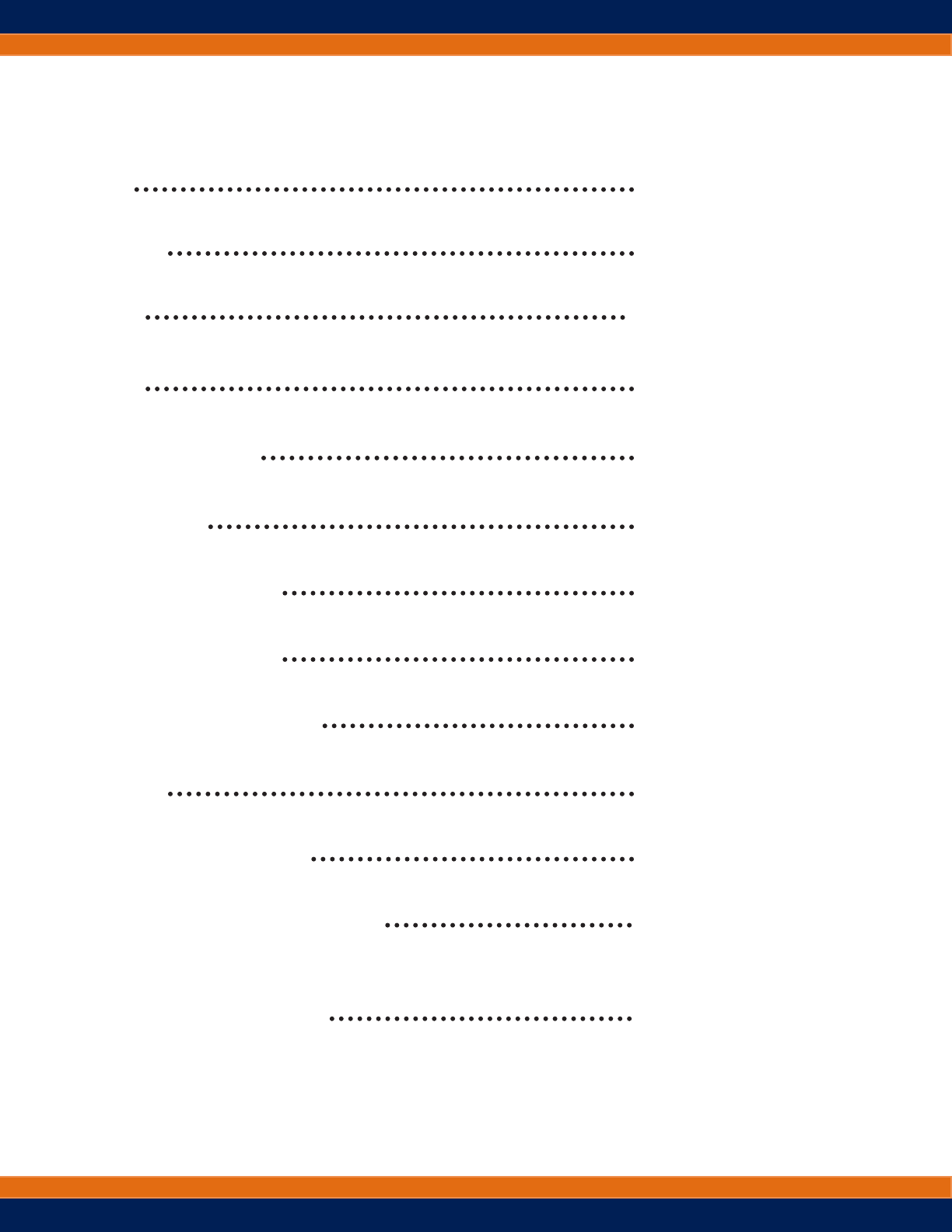
Cafe Locations and Contact Information
Eggers Ph: 315.443.9381
Goldstein Ph: 315.443.1737
Dineen Ph: 315.443.2870
Slocum Ph: 315.443.8422
Warehouse Cafe Ph: 315.443.1972
Life Sciences Ph: 315.443.8395
Pages (Bird Library) Ph: 315.443.6201
Olsten’s (Whitman) Ph: 315.443.3966
Food.com (Newhouse) Ph: 315.443.4870
Falk Cafe Ph: 315.243.4600
NVRC Cafe (Canteen) Ph: 315.443.2764
Arch Cafe (Otto’s Juice Box) Ph: 315.443.5580
Student Office (Deena) Ph: 315.443.5285
Email: dmcapria@syr.edu
20

